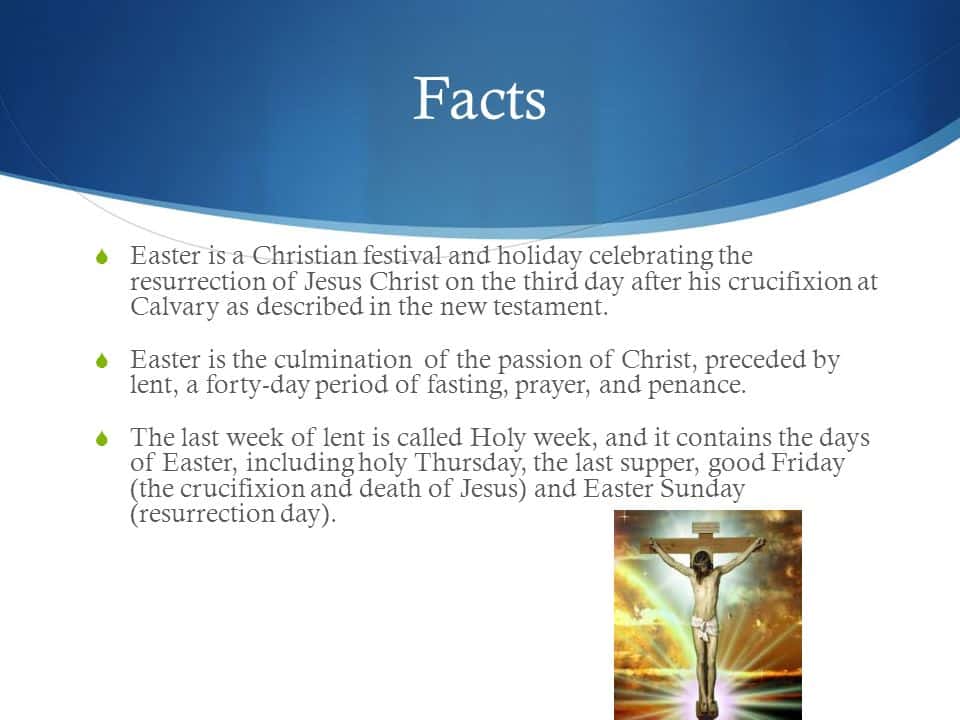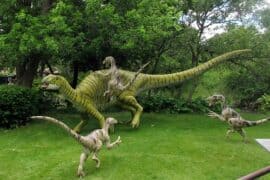? A Complete Guide for Parents: Fun Easter Day Facts to Share With Your Kids ?
Hey there, wonderful parents! As Easter hops around the corner, it’s the perfect time to gather some eggs-traordinary facts to make this holiday not only a fun-filled family festivity but also an educational experience for your little bunnies. So, get ready to crack open the shell of history, sprinkle some cultural knowledge, and dive into the vibrant traditions of Easter Day! ??
? The Origins of Easter
Easter is a holiday rich with history and brimming with significance. Originally, Easter is the central feast in the Christian liturgical year, celebrating the resurrection of Jesus Christ on the third day after his crucifixion, as described in the New Testament. The date of Easter varies each year, being determined by the lunar calendar – specifically, it’s on the first Sunday after the full moon that occurs on or after March 21st.
But hold onto your Easter hats, because this holiday has even older roots! Many of the modern-day Easter practices can be traced back to pre-Christian, pagan times. The very name Easter might have been derived from Eostre, a Germanic goddess of spring and fertility, which brings us to the delightful Easter symbols we know and love today.
? The Easter Bunny and Eggs: Symbols of New Life
Let’s hippity-hop into the world of the Easter Bunny and those iconic Easter eggs. Both of these symbols are ancient representations of new life and rebirth – quintessential themes of spring. The Easter Bunny traditionally plays the role of a judge, deciding whether children have been good or bad, and then doling out treats like colored eggs, candy, and sometimes even toys to the good ones!
But why do bunnies deliver eggs, you may wonder? Bunnies are known for their lively springtime ‘hoppenings,’ making them a perfect fit for a season that epitomizes growth and new beginnings. And eggs symbolize rebirth, making them an apt metaphor for the resurrection of Jesus Christ for Christians. Decorating and hiding eggs has become a fun tradition for families across the world – one your kids might be eagerly anticipating as Easter Sunday approaches!
? Fun Easter Traditions Around The World
Easter isn’t just about egg hunts and chocolate bunnies – oh no, it’s a global jamboree with unique customs that span from flying kites to water fights! Each country has its spin on how to celebrate. For instance:
- In Sweden, children dress up as Easter witches and go door-to-door in search of treats – think Halloween with a spring twist.
- A delicious tradition in Italy is the making and sharing of Colomba di Pasqua, a dove-shaped Easter cake symbolizing peace and renewal.
- In Poland, there’s ?migus-dyngus, or Wet Monday, where people playfully sprinkle water on each other, stemming from the baptism of Polish Prince Mieszko I on Easter Monday in 966 AD.
Each tradition has its story, making Easter an ideal time to teach kids about cultural diversity and the many ways people celebrate life around the globe. It’s a wonderful opportunity to crack open not just eggs but conversations about world customs in a fun, interactive way.
? From Fast to Feast: The Culinary Delights of Easter
Easter feasting is as integral to the holiday as the Easter egg itself. After a period of fasting during Lent, which lasts for 40 days, Easter Sunday is seen as a time to rejoice and indulge. What’s on the menu often depends on where you are in the world.
In many countries, you can’t talk Easter without talking chocolate! The first chocolate eggs were made in Europe in the 19th century, and their popularity has only grown since then. But it’s not all sweet treats; savory dishes play a big role, too. Roast lamb is a traditional Easter meal in places like the UK, reminiscent of the Last Supper.
? Easter Crafts: Engaging Activities for the Whole Family
A great way to bond with the kids and get into the festive spirit is through Easter crafts. Whether it’s making Easter bonnets, creating colorful egg decorations, or constructing bunny-themed crafts, these activities not only fuel creativity but also create memories to last a lifetime.
And let’s not forget about the joy of planting! With spring in full bloom, planting an Easter garden can be a beautiful way to teach kids about growth, nature, and patience. Plus, it’s an outdoor activity that gets those little hands off screens and into soil.
By sharing these exciting Easter facts and involving your children in the storied traditions, you’re doing more than just celebrating a holiday – you’re enriching their understanding of history, culture, and the joy of seasonal change. And there’s even more to learn and explore together! Let’s make this Easter a memorable one with a basket full of fun tidbits and traditions that’ll keep the entire family engaged and hopping with joy. ??

5 Things Parents Should Know When Preparing for Easter Day Facts
1. Educate Through Storytelling
Before the Easter eggs come out, it’s story time! Understanding the roots of Easter helps children appreciate the celebration beyond chocolate and bunnies. Discuss the historical and religious aspects of Easter with age-appropriate stories and fun facts. This doesn’t just apply to the Christian narrative; explore tales of spring and rebirth from various cultures to give your kids a well-rounded view of this festive season.
2. Embrace Multicultural Traditions
Easter traditions vary across the globe, and bringing some of these customs into your home can be a blast! Introduce your kids to different Easter customs through activities like crafting a Swedish Easter witch or baking a batch of Italy’s Colomba di Pasqua. It’s a lively way to teach respect for cultural diversity and show that while we all celebrate in different ways, the themes of joy and community are universal.
3. Safety First During Easter Egg Hunts
Easter egg hunts are the highlight of the day for many kids, but safety should always come first. Use non-toxic materials for egg decorating, check the weather forecast if you’re planning an outdoor hunt, and set clear boundaries to prevent any excited little ones from wandering off. If you’re hiding real eggs, keep track of where they are to avoid any rotten surprises later on!
4. Balance is Key
While Easter is certainly a time for treats, balance is important. Mix healthy snacks like carrot sticks (bunny food!) in with the chocolate and candies. You can also turn snack time into an educational moment, discussing the importance of nutrition and the foods historically associated with Easter, such as lamb and eggs.
5. Plan for All Weathers
The spring weather can be as unpredictable as a hare’s hop! If you’re planning outdoor activities, have a backup plan in case rain comes to the Easter parade. Indoor treasure hunts, craft sessions, or a cozy movie time with an Easter-themed film can save the day and keep spirits as buoyant as a bunny’s leap.
With these tips in hand, parents can prepare for an Easter celebration that is not only jubilant but also safe, educational, and inclusive of various cultural practices. Remember, Easter is more than a single day; it’s a season of renewal and a fantastic opportunity to foster learning, creativity, food appreciation, and family bonding. So let’s hop to it and make this Easter one for the history books – or at least, the family photo album!
See more great Things to Do with Kids in New Zealand here. For more information see here
Disclaimer
The articles available via our website provide general information only and we strongly urge readers to exercise caution and conduct their own thorough research and fact-checking. The information presented should not be taken as absolute truth, and, to the maximum extent permitted by law, we will not be held liable for any inaccuracies or errors in the content. It is essential for individuals to independently verify and validate the information before making any decisions or taking any actions based on the articles.




